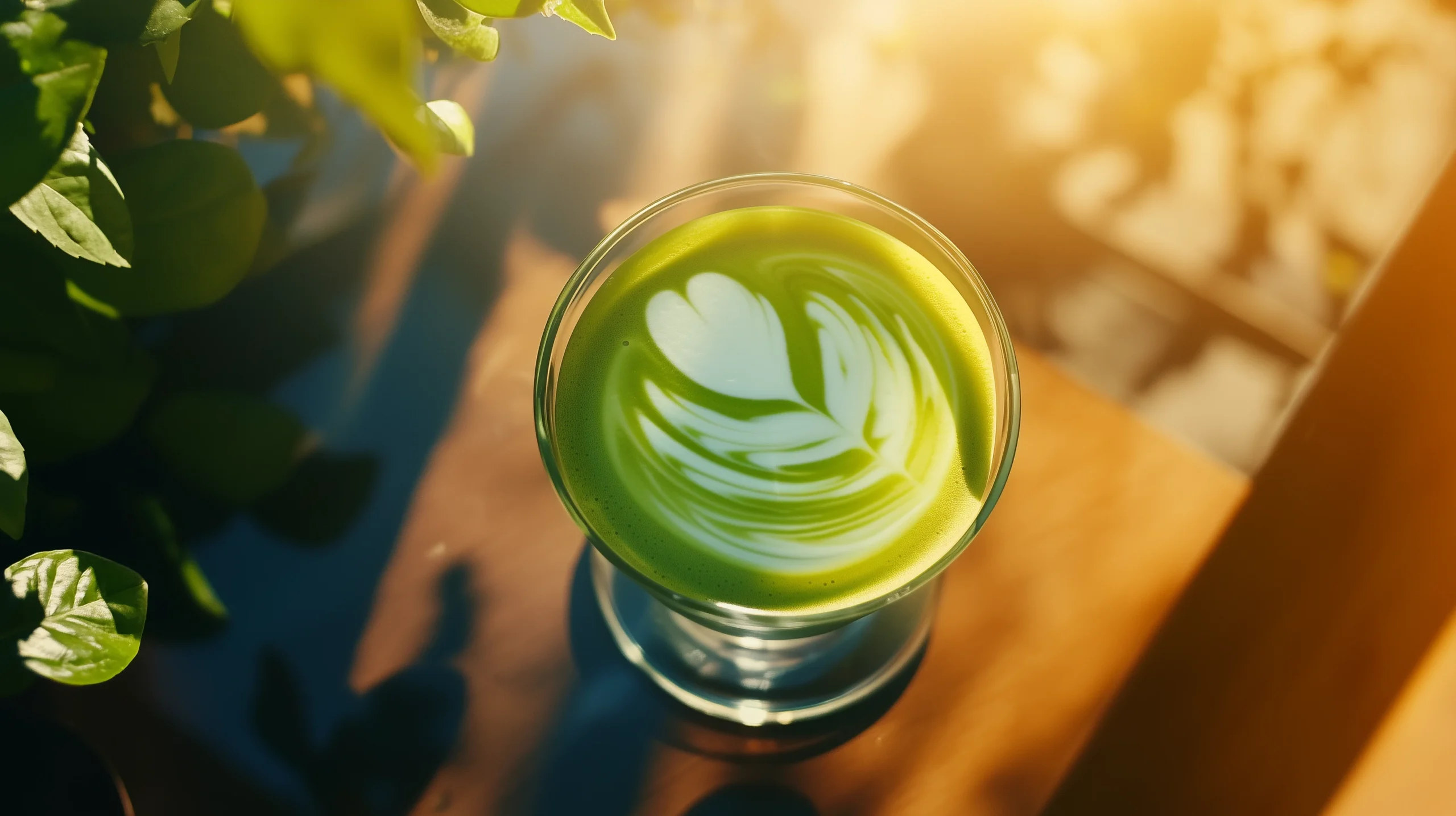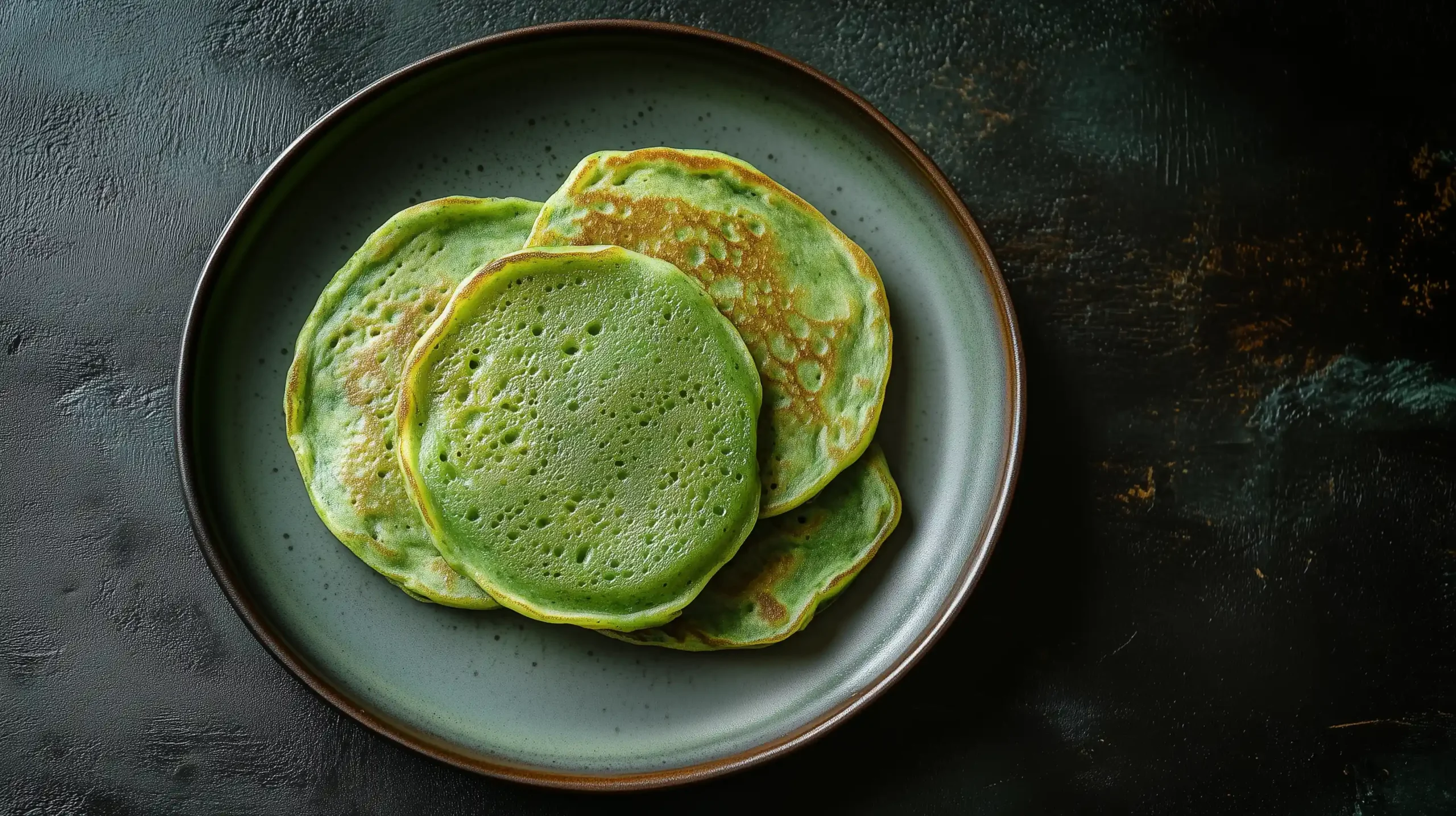FAQ | What is matcha?
Matcha is a finely ground powder originating from the camellia sinensis plant. This plant is the same plant used to make green tea, oolong tea, and black tea. Over more than a thousands years, matcha has deeply woven itself into traditional asian ceremonial practices and is easily recognizable through its vibrant green color and distinct umami flavor. The main difference is found in how it is grown, harvested and produced that elevates matcha a step above the rest!
To learn more, read our blog on Everything You Need To Know About Matcha.
FAQ | What are the health benefits of matcha?
Matcha is packed full of antioxidants, particularly catechins such as EGCG. Research suggests that these help reduce inflammation, boot metabolism, while also supporting overall heart and brain health. In addition, it contains L-theanine, which promotes relaxation and focus without the crashing effect most people feel with alternative caffeine-based products.
For more on the health benefits of matcha, read our blog on 15 Surprising Health Benefits of Drinking Matcha Every Day.
FAQ | How does matcha help with inflammation?
Everyone deals with inflammation to some degree. While some have it much worse then others, the benefits that can be taken from matcha consumption are universal. Whether its the antioxidants helping fight against free radicals, or the L-theanine encouraging calmness and stress reduction (a huge contributor to inflammation) the ability of matcha to target inflammation is unparalleled.
The Science Behind Matcha And Inflammation
Antioxidant Activity:
EGCG in matcha has been shown to decrease inflammatory markers such as C-reactive protein (CRP) and interleukin-6 (IL-6).Inhibition of Inflammatory Pathways:
According to studies, matcha is able to down-regulate pathways such as NF-κB, which is a master regulator of the inflammatory response.Stress Reduction:
We know that long-term stress tends to cause inflammation, again it is one of the main causes. The l-theanine found in matcha, can induce calm which may your body down and help lower stress-induced inflammation.
While we are only scratching the surface here, check out our blog Matcha Can Reduce Inflammation to learn more.
FAQ | How is matcha different from regular green tea?
Matcha and green tea both come from the same plant, but have noticeably different benefits. Unlike regular green tea, matcha is made up of the entire leaf, which when consumed provides significantly higher levels of antioxidants, caffeine, and nutrients. Matcha is also made from plants that spend time grown in the shade to enrich their chlorophyll and amino acid contents.
To learn more about the difference in health benefits for matcha versus green tea, take a look at our blog Which Is Better For health: Matcha or Green Tea?
FAQ | How do I prepare matcha?
Matcha is a universal superfood, which means it can be prepared in a variety of different ways. It can be used to make drinks, foods, even topical creams that will help with your skin health.
While there isn’t one right way to prepare matcha, there are a few things you should know.
- Matcha is from tea leaves, which mean if its paired with something too hot it is susceptible to burning, leaving a bitter, burnt taste.
- Matcha is very heavily concentrated so a little goes a long way.
- Lower quality matcha will have a more bitter taste, while the high quality (ceremonial grade) matcha has a smoother, more umami taste.
For a line up of delicious, anti-inflammatory matcha recipes, visit our recipes page.
FAQ | Does matcha have caffeine?
Matcha does contains caffeine created naturally through the growth of the leaves. The caffeine found in matcha is roughly 40-70% of the caffeine found in a similar amount of coffee. While both matcha and coffee contain caffeine, the common “3 pm slump” feeling that occurs after drinking coffee doesn’t happen with matcha. This is because matcha releases its caffeine a little bit at a time, giving you a smooth booth and a smooth decline.
For more on the caffeine in matcha and how to compares to coffee, read out blog Matcha vs. Coffee: Competitive Caffeine Choices.
FAQ | What does matcha taste like?
Matcha has a very rich, almost earthy flavor profile with subtle hints of sweetness and umami. The biggest contributor to its taste is the quality with high grades being more sweet and smooth and lower grades more bitter and pungent. The lower grades of matcha are more often used for cooking, since the flavor can be blended in with the additional supplies. For delicious, anti-inflammatory recipes using matcha, look through our recipes section.
FAQ | Is matcha safe for everyone?
Matcha is considered to be generally safe. Despite being considered safe you should exercise caution if you have a caffeine sensitivity, are pregnant or looking to become pregnant or are breastfeeding. Please consider consulting a health care provider before engaging in regular consumption. Overconsumption may lead to discomfort and digestive troubles in some individuals.
If discomfort begins, please stop using the product and consult a health care provider.
FAQ | What are the different grades of matcha?
Matcha comes in four different grades. These grades are used to determine the quality of the matcha. Each grade has its own unique set of quality standards, processing procedures and best practices for growing. The grades are as follows:
- Standard Grade – Used for daily drinking, cooking or baking
- Premium Grade – Stronger than standard, mainly used for daily drinking, cooking or baking
- Ceremonial Grade – Used mainly for high-end drinks due to the average cost, but superior quality
- Super Grade – Almost exclusively used as a tea gift because its is about 4-5x more expensive then ceremonial grade.
At RW Matcha we sell exclusively Ceremonial grade tea, which has been rigorously tested against quality and purity standards. Our pinpoint focus on ceremonial matcha allows us to not only make high quality products affordable and achieve our mission of Fighting America’s Inflammation Epidemic.
FAQ | How should I store my matcha to maximize shelf life?
All of our matcha comes in a factory sealed 50 gram tin. After opening, matcha has approximately a 1 year shelf-life.
It is best to keep the matcha closed and sealed tight, when possible. We also recommend storing the matcha in a cool, dark place like a cabinet or refrigerator for the best results.
FAQ | Can matcha help with weight loss?
Matcha may support weight loss as it boosts your metabolism and promotes fat oxidation during exercise.
Matcha alone should not be used as a diet or exercise plan and should be taken in tandem with a healthy diet and regular exercise for the best results.
FAQ | Where can I find anti-inflammatory matcha recipes?
We have a running list of delicious, anti-inflammatory recipes that can be used to maximize the benefits from your matcha. We will be updating these regularly and would love to sponsor your anti-inflammatory recipes on our page as well!
To see our full line up of anti-inflammatory matcha recipes, visit our recipes page.
FAQ | Did we miss your question?
If you have a question that we do not answer here, please send us a message through our contact us page and we will get back to you in 24-48 hours.
Thank you in advance for your patience!



